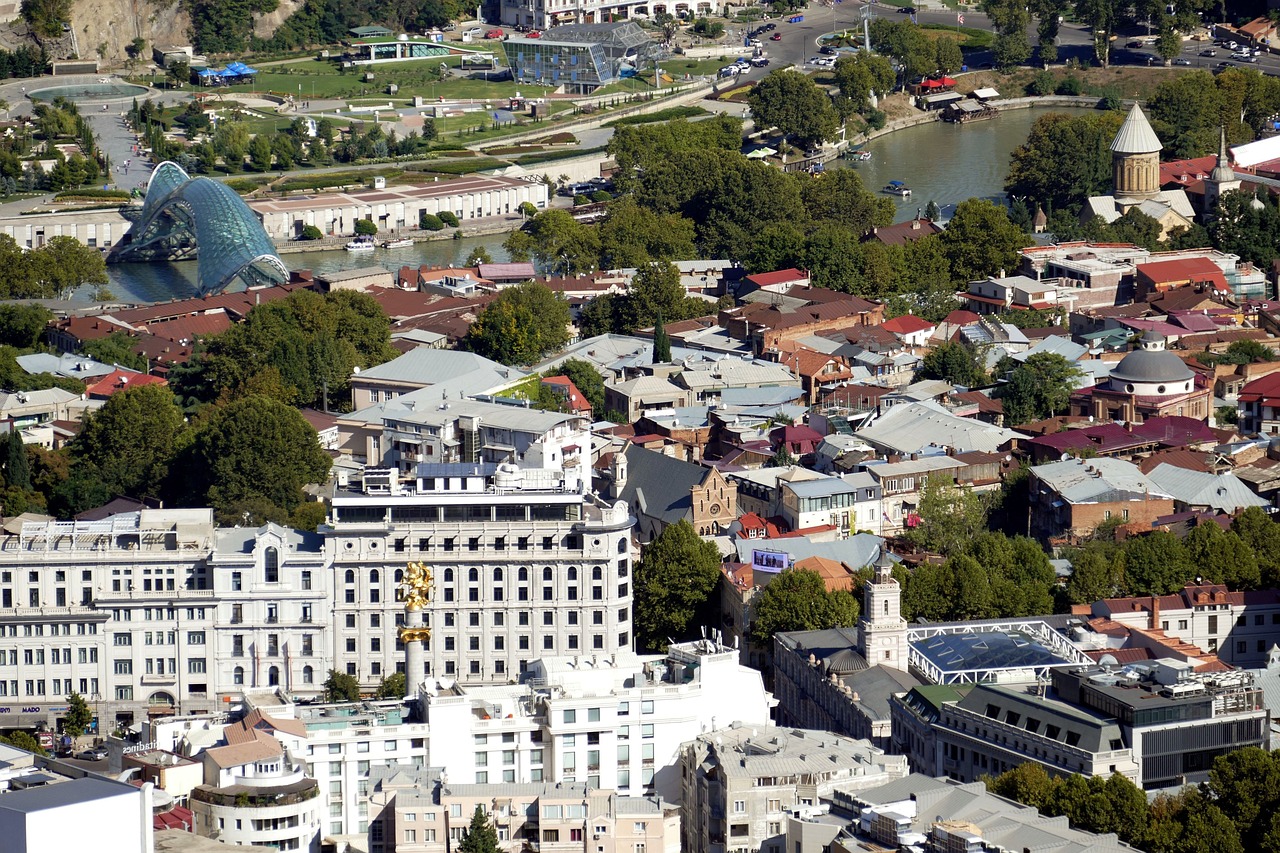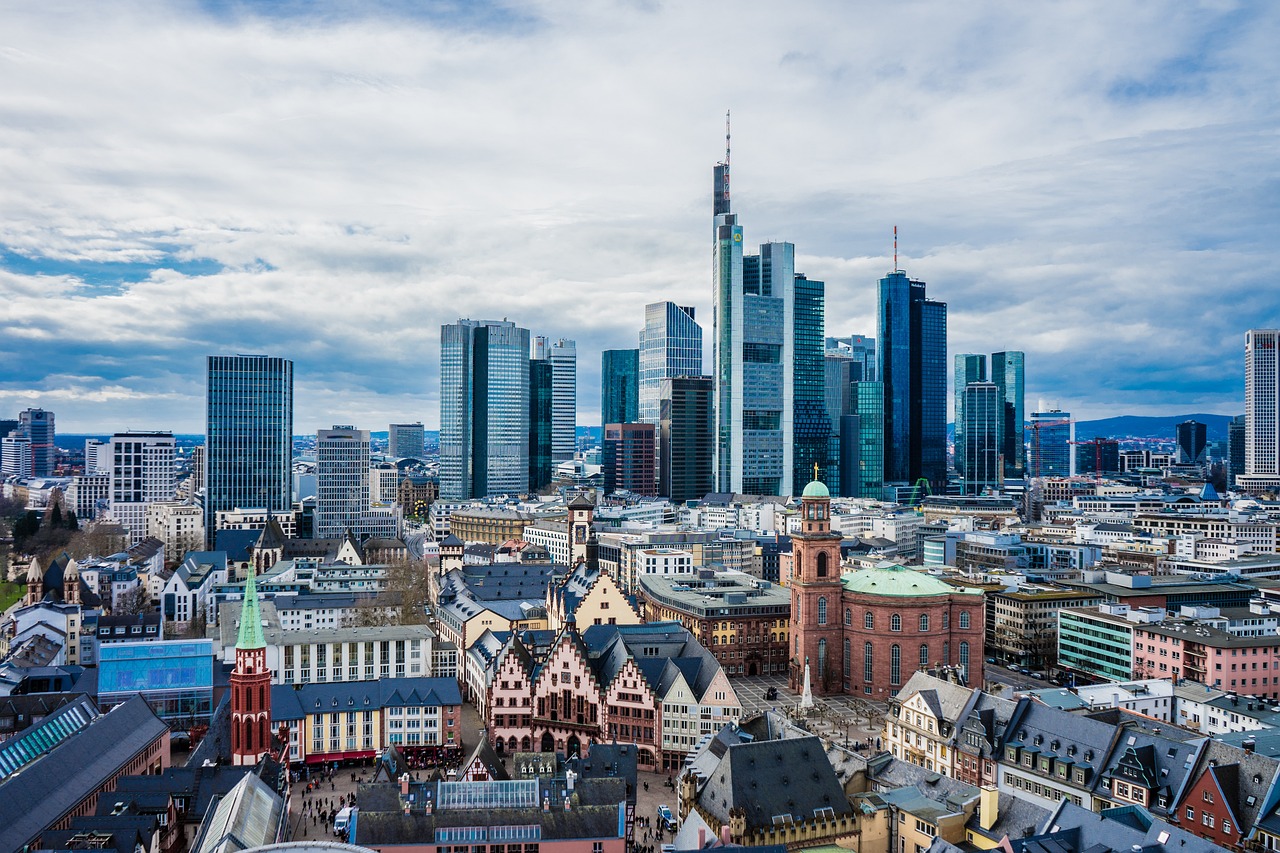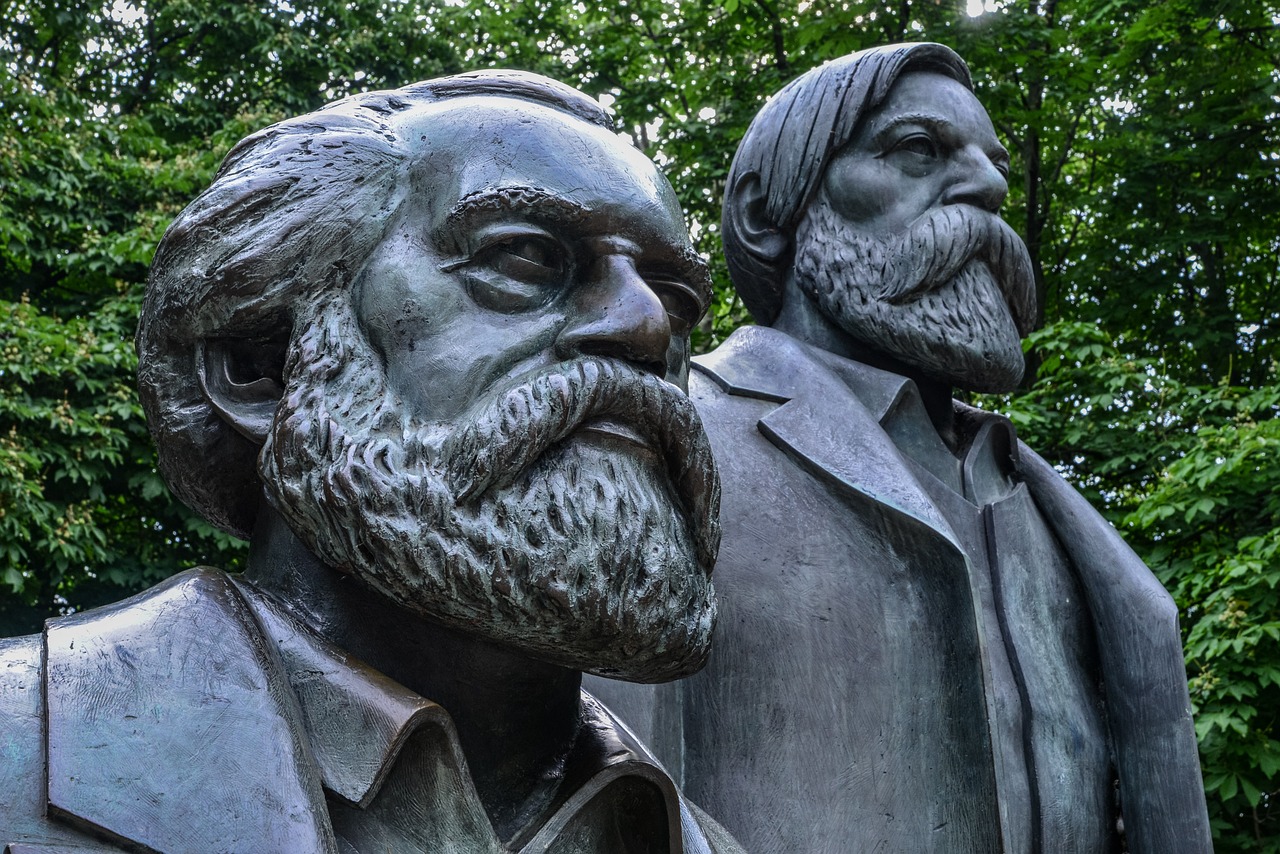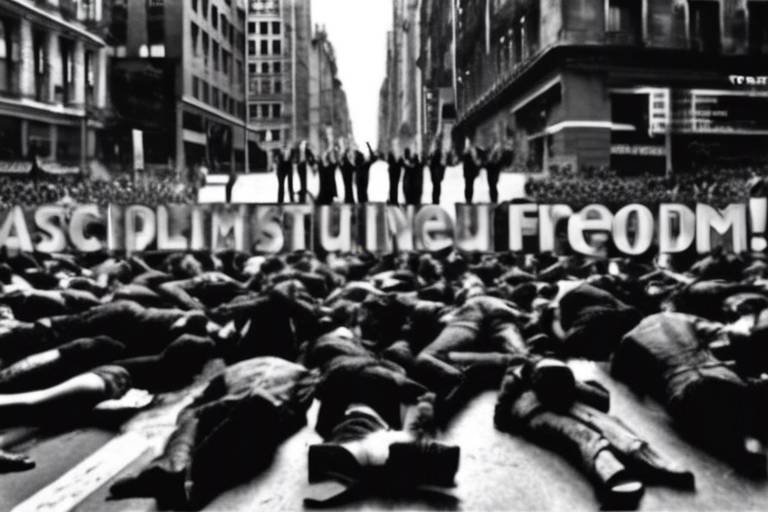How does Capitalism Influence our Freedom?
Capitalism, a term that often evokes strong reactions, plays a pivotal role in shaping our freedoms today. But what does it really mean for our personal liberties? Is it a liberating force that empowers individuals, or does it create chains that bind us to consumerism and inequality? In this exploration, we’ll dive into the intricate web of capitalism and its influence on our freedom, examining both the bright and shadowy corners of this economic system. Think of capitalism as a double-edged sword; on one side, it offers opportunities and choices, while on the other, it can lead to disparities and restrictions. So, let’s embark on this journey to unpack how capitalism interacts with our freedoms—both the economic and personal aspects.
At its core, capitalism is an economic system where private ownership and free markets drive production and distribution. This means that individuals and businesses own resources and goods, making decisions based on supply and demand. One of the foundational principles of capitalism is the idea of competition. This competition fuels innovation and efficiency, allowing consumers to enjoy a variety of products and services. However, this system also comes with its own set of rules and norms that can either enhance or limit our freedoms. Understanding these basic elements is crucial to grasping how capitalism shapes our economic interactions and personal choices.
Now, let’s take a closer look at the difference between economic freedom and personal freedom. Economic freedom refers to the ability to control one’s own economic resources, make purchases, and engage in trade. In contrast, personal freedom encompasses broader aspects of individual liberty, including the right to express oneself, pursue happiness, and make life choices. While capitalism can enhance economic freedom—allowing you to choose where to work, what to buy, and how to invest—it can sometimes restrict personal freedom. For instance, the pressure to conform to consumer culture may limit your ability to express your true self. Isn't it ironic how the freedom to choose can sometimes lead to a lack of genuine choice?
One of the most celebrated aspects of capitalism is its promotion of consumer choice. With countless options available, individuals can make personal decisions that reflect their preferences and values. This autonomy can significantly enhance personal freedom. However, the question arises: does having too many choices lead to a sense of overwhelm or even dissatisfaction? As we navigate the sea of products and services, we may find ourselves caught in the web of consumerism, where the pursuit of the latest gadget or trend can overshadow our deeper desires for connection and fulfillment. It’s a fascinating paradox that begs for reflection.
The competitive nature of capitalism is a double-edged sword. On one hand, it drives innovation and quality, providing consumers with more options than ever before. Think about how competition has led to advancements in technology, healthcare, and entertainment. However, this same competition can lead to monopolies, where a single entity dominates the market. When this happens, consumer choices dwindle, and the very freedom that capitalism promises can be compromised. It’s a delicate balance that requires constant vigilance from both consumers and regulators.
While capitalism can generate immense wealth, it often results in significant disparities. The rich get richer, while the poor struggle to make ends meet. This concentration of wealth can drastically affect access to resources and opportunities, ultimately influencing individual freedoms. For example, those with financial means can afford quality education, healthcare, and housing, while others may find themselves trapped in a cycle of poverty. This disparity raises critical questions: is true freedom attainable in a system that rewards some while leaving others behind? The answer is complex and deeply intertwined with societal values and policies.
Government regulation plays a pivotal role in the capitalist framework, serving as a balancing act between market freedoms and societal protections. Regulations can enhance individual freedoms by ensuring fair competition, protecting consumers, and safeguarding the environment. However, excessive regulation can stifle innovation and limit choices. It’s a tightrope walk for policymakers who must navigate the fine line between fostering economic growth and protecting individual rights. How do we strike this balance? It’s a question that continues to challenge societies around the globe.
The rise of global capitalism has transformed the way nations interact economically. With the advent of technology and communication, businesses can now operate across borders, creating a more interconnected world. This globalization offers unprecedented opportunities for individuals to engage in international trade and access diverse markets. However, it also presents challenges, such as the potential loss of local cultures and the exploitation of labor. As we embrace this global landscape, we must consider how these changes impact our freedoms—both positively and negatively.
Capitalism doesn't just influence our wallets; it shapes our cultural values and norms. The emphasis on success, work ethic, and consumption often leads to a societal attitude that equates worth with wealth. This cultural shift can have profound implications for personal freedom and identity. For instance, individuals may feel pressured to conform to societal expectations of success, leading to stress and dissatisfaction. It’s essential to recognize how these cultural undercurrents can affect our understanding of freedom and self-worth.
As capitalism evolves, so too does its relationship with freedom. Emerging trends, such as the rise of technology-driven economies and the push for sustainable practices, present both opportunities and challenges. Potential reforms could focus on creating a more equitable system that enhances personal liberties while maintaining economic vitality. The future may hold exciting possibilities for redefining freedom in a capitalist context, but it requires active participation from individuals, businesses, and governments alike. So, what does the future hold for capitalism and our freedoms? Only time will tell, but the conversation is just beginning.
- What is capitalism? Capitalism is an economic system characterized by private ownership and free markets, where individuals and businesses make decisions based on supply and demand.
- How does capitalism affect personal freedom? Capitalism can enhance personal freedom by providing consumer choices but can also limit freedom through consumerism and wealth disparities.
- What role does government regulation play? Government regulation balances market freedoms with societal protections, ensuring fair competition and consumer rights.
- What are the cultural impacts of capitalism? Capitalism shapes societal values, often equating success with wealth and influencing how individuals perceive their own worth.
- What does the future hold for capitalism? The future of capitalism may involve reforms that promote equity and sustainability while enhancing personal liberties in a changing global landscape.

The Basics of Capitalism
Understanding the foundational principles of capitalism is essential for grasping its impact on freedom. At its core, capitalism is an economic system where the means of production and distribution are privately owned and operated for profit. This system hinges on a few key characteristics that define its structure and functioning:
- Private Property: Individuals have the right to own and control their property, which allows them to make decisions about their assets without excessive interference.
- Market Economy: Prices and production are dictated by supply and demand, fostering a dynamic environment where resources are allocated efficiently.
- Competition: Businesses compete for customers, which drives innovation and helps maintain quality while keeping prices in check.
- Profit Motive: The desire to earn profits motivates individuals and companies to create goods and services that meet consumer needs.
These characteristics create a landscape where economic interactions flourish, enabling individuals to make personal choices about their careers, purchases, and investments. However, this freedom is not without its complexities. While capitalism encourages personal autonomy, it can also lead to significant societal implications. For instance, the emphasis on profit can sometimes overshadow ethical considerations, leading to practices that may infringe on individual rights or environmental sustainability.
Additionally, the capitalist framework fosters a culture of consumerism, where personal worth is often measured by material possessions. This can create a paradox: while individuals enjoy the freedom to choose and purchase, they may also feel pressured to conform to societal standards of success, which can limit their true sense of freedom and identity. The interplay between personal choice and societal expectation is a fascinating aspect of capitalism that merits further exploration.
To sum it up, capitalism is a double-edged sword. It provides a platform for personal freedom and choice, yet it also introduces challenges that can complicate our understanding of what true freedom means in a modern context. By recognizing these dynamics, we can better navigate the complexities of our economic landscape and advocate for a system that balances individual liberties with collective well-being.

Economic Freedom vs. Personal Freedom
When we dive into the intricate world of capitalism, one of the most fascinating yet perplexing distinctions we encounter is between economic freedom and personal freedom. At first glance, they might seem like two sides of the same coin, but they can often pull us in different directions. Economic freedom refers to the ability of individuals to control their own economic resources, make choices about investments, and engage in trade without excessive government interference. On the other hand, personal freedom encompasses a broader spectrum of individual liberties, including the right to express oneself, pursue happiness, and live life according to one’s own values and beliefs.
In a capitalist society, economic freedom can significantly enhance personal freedom. For instance, when individuals have the liberty to start their own businesses, they can create jobs, generate income, and contribute to the economy. This entrepreneurial spirit fosters a sense of autonomy and empowerment. However, this landscape is not without its challenges. While capitalism encourages innovation and competition, it can sometimes lead to a scenario where economic success becomes the primary measure of an individual's worth, overshadowing personal freedoms.
Consider this: when economic freedom is prioritized, it can inadvertently create a culture where wealth accumulation becomes synonymous with personal success. This can lead to a societal divide where those who succeed economically gain more influence and power, potentially marginalizing those who struggle. In such cases, personal freedom may be compromised for many, as they might find themselves trapped in a cycle of poverty with limited access to opportunities.
Moreover, the relationship between these two freedoms is further complicated by the role of government regulations. While regulations are often necessary to protect consumers and maintain fair competition, they can also impose restrictions that limit both economic and personal freedoms. For example, excessive regulations might stifle small businesses, preventing budding entrepreneurs from entering the market and exercising their economic rights. This, in turn, can lead to a less vibrant economy and restrict personal freedoms associated with choice and opportunity.
Ultimately, the balance between economic freedom and personal freedom is a delicate one. It requires a nuanced understanding of how these two freedoms interact and influence each other. In a thriving capitalist society, it is essential to foster an environment where individuals can enjoy both economic opportunities and the personal liberties that allow them to pursue their passions and aspirations. Striking this balance is not just crucial for individual well-being; it is also vital for the overall health of society. As we navigate the complexities of capitalism, we must continually ask ourselves: how do we ensure that economic freedom enhances, rather than hinders, personal freedom?
- What is the difference between economic freedom and personal freedom? Economic freedom refers to the ability to control economic resources and engage in trade, while personal freedom encompasses broader individual liberties.
- Can economic freedom limit personal freedom? Yes, in some cases, a focus on economic success can overshadow personal liberties and create societal divides.
- How do government regulations affect these freedoms? Regulations can protect consumers and maintain competition, but excessive regulations may stifle economic opportunities and limit personal freedoms.

Consumer Choice and Autonomy
In the world of capitalism, consumer choice is often heralded as a cornerstone of personal autonomy. Imagine walking into a store filled with countless options, each product vying for your attention—this is the essence of capitalism at work. It empowers individuals to make decisions based on their preferences, needs, and desires. However, while this freedom to choose can feel exhilarating, it also invites a deeper examination of what it truly means for our autonomy and the implications it has on society.
On one hand, the plethora of choices available to consumers can be liberating. You can select from a wide array of products, from the latest tech gadgets to organic food options, tailoring your purchases to fit your unique lifestyle. This level of autonomy allows individuals to express their identities through their consumption habits. For instance, someone who opts for eco-friendly products may be signaling their commitment to sustainability, while another who purchases luxury items might be showcasing their social status. In this way, capitalism fosters a sense of personal identity through consumer choices.
However, the question arises: does having more choices always equate to greater freedom? The paradox of choice suggests that an overwhelming number of options can lead to anxiety and dissatisfaction. When faced with too many alternatives, we might struggle to make decisions, leading to a phenomenon known as "analysis paralysis." Instead of feeling empowered, consumers can feel burdened by the weight of their choices. This complexity is further compounded by the influence of marketing and advertising, which can manipulate our preferences and desires, subtly guiding us toward certain products while obscuring others.
Moreover, the nature of consumerism raises questions about societal values. Are we truly free if our choices are heavily influenced by external factors? The constant bombardment of advertisements can create a cycle where individuals feel compelled to buy more, often leading to a culture of excess. This consumer-driven mentality can overshadow the more profound aspects of personal freedom, such as the ability to engage in meaningful experiences or connect with others beyond material possessions.
To better understand the dynamics of consumer choice and autonomy, consider the following table that outlines the pros and cons:
| Pros of Consumer Choice | Cons of Consumer Choice |
|---|---|
| Empowers individuals to express their identity | Can lead to decision fatigue and anxiety |
| Encourages innovation and competition among businesses | May promote materialism and overconsumption |
| Increases satisfaction through tailored options | Choices can be manipulated by marketing |
In conclusion, while capitalism undoubtedly enhances consumer choice and autonomy, it also presents challenges that can complicate our understanding of freedom. The balance between having options and being overwhelmed by them is delicate, and it requires a conscious effort to navigate. As consumers, we must remain vigilant about the influences that shape our choices, ensuring that our autonomy is not just an illusion but a genuine reflection of our values and desires.
- How does consumer choice impact personal freedom? Consumer choice enhances personal freedom by allowing individuals to make decisions that reflect their preferences. However, it can also create pressure and confusion when faced with too many options.
- Can capitalism lead to consumerism? Yes, capitalism often encourages consumerism, where individuals prioritize purchasing goods over other values, which can detract from deeper personal freedoms.
- What is the paradox of choice? The paradox of choice refers to the phenomenon where having too many options can lead to anxiety and dissatisfaction, ultimately undermining the sense of freedom that choice is supposed to provide.

Market Competition
Market competition is often hailed as one of the cornerstones of capitalism, driving innovation and enhancing the quality of goods and services available to consumers. When businesses compete, they are compelled to improve their offerings, whether through better technology, superior customer service, or lower prices. This dynamic environment not only benefits consumers by providing them with more choices but also fosters a culture of creativity and progress. Imagine a race where every participant is striving to outdo the other; the result is a thrilling spectacle that pushes everyone to their limits. This is the essence of market competition.
However, while competition can lead to a vibrant marketplace, it also has a darker side. Over time, some companies may gain such a significant advantage that they create monopolies or oligopolies, where a few players dominate the market. This can limit consumer choices and lead to higher prices, ultimately restricting the very freedom that competition is supposed to promote. For instance, when a single company controls a particular market, consumers may find themselves with no alternatives, leaving them at the mercy of that company's pricing and policies. In this scenario, competition fades, and the freedom to choose is significantly diminished.
Moreover, the impact of market competition extends beyond economics; it shapes societal norms and values. In a fiercely competitive environment, success is often equated with wealth and status, leading to a culture that prioritizes material gain over communal well-being. This can foster an individualistic mindset where personal achievement overshadows collective responsibility. As a result, while some individuals thrive in a competitive landscape, others may struggle, feeling the weight of societal expectations and the pressure to succeed at all costs.
To illustrate the dual nature of market competition, consider the following table that outlines both its advantages and disadvantages:
| Advantages of Market Competition | Disadvantages of Market Competition |
|---|---|
| Encourages innovation and creativity | Can lead to monopolies and reduced choices |
| Improves quality of products and services | May create a culture of individualism over community |
| Lowers prices for consumers | Can result in economic disparities among individuals |
In conclusion, while market competition plays a vital role in enhancing consumer freedom and driving economic growth, it is essential to remain vigilant about its potential pitfalls. Striking a balance between fostering competition and ensuring fair access to resources is crucial for maintaining individual liberties in a capitalist society. After all, the goal should be to create an environment where everyone has the opportunity to thrive, rather than allowing a few to dominate the landscape.
- What is market competition? Market competition refers to the rivalry among businesses to attract customers and increase sales, often leading to better products and services.
- How does competition benefit consumers? Competition encourages innovation, improves quality, and often results in lower prices, providing consumers with more choices.
- What are the risks of monopolies? Monopolies can limit consumer choices, lead to higher prices, and reduce the incentive for companies to innovate.
- Can competition harm society? Yes, excessive competition can foster individualism and economic disparities, impacting community well-being.

Wealth Disparities
In the intricate tapestry of capitalism, one of the most striking features is the emergence of . While capitalism is celebrated for its ability to generate wealth and foster innovation, it also has a darker side that reveals itself through significant differences in wealth distribution among individuals and communities. These disparities can be likened to a double-edged sword; on one side, they encourage ambition and drive, but on the other, they can create barriers that restrict access to essential resources and opportunities.
Wealth concentration often leads to a scenario where a small percentage of the population controls a large portion of the economic resources. This concentration can stifle competition and innovation, as those with immense wealth may leverage their power to influence market dynamics and public policy to their advantage. For instance, consider the tech giants that dominate the market; their financial clout allows them to invest in research and development, but it can also lead to practices that limit competition and consumer choice.
Moreover, the impact of wealth disparities extends beyond economics; it seeps into the fabric of society, influencing education, healthcare, and even social mobility. Individuals from wealthier backgrounds often have access to better educational opportunities, which can perpetuate a cycle of privilege. In contrast, those from lower-income families may find themselves trapped in a cycle of poverty, facing challenges that hinder their ability to improve their circumstances. This creates a societal divide where the American Dream—the idea that anyone can achieve success through hard work—becomes increasingly elusive for many.
To illustrate this point, let's take a look at some statistics that highlight the extent of wealth disparities:
| Income Percentile | Average Wealth |
|---|---|
| Top 1% | $10,374,030 |
| Top 10% | $1,600,000 |
| Middle 40% | $150,000 |
| Bottom 50% | $25,000 |
As shown in the table, the average wealth of the top 1% is staggering compared to that of the bottom 50%. This stark contrast raises questions about fairness and equity in a capitalist society. Are we truly free if our opportunities are dictated by the wealth we inherit or the circumstances of our birth? These disparities not only affect individual lives but also shape the overall landscape of society, influencing everything from political power to social cohesion.
Addressing wealth disparities requires a multifaceted approach, including policy reforms aimed at enhancing economic mobility and ensuring that everyone has a fair shot at success. This could involve implementing progressive taxation, improving access to quality education, and creating job opportunities in underserved communities. By tackling these issues head-on, we can strive towards a more equitable society where personal freedoms are not just a privilege for the few but a right for all.

Regulation and Freedom
When we talk about capitalism, the word often conjures images of bustling markets, innovative startups, and the freedom to choose. However, lurking in the background is the critical role of government regulation. You might wonder, “Isn’t regulation the enemy of freedom?” Well, it’s a bit more complicated than that. Regulations are designed to create a balance between the freedom of the market and the need for societal protections. Think of it as a double-edged sword; while it can sometimes curtail certain freedoms, it can also enhance overall liberty by ensuring fair play.
At its core, regulation aims to protect consumers, workers, and the environment. For example, without regulations, businesses might prioritize profits over safety, leading to hazardous working conditions or unsafe products. Imagine a world where companies could sell anything without oversight—chaos would reign, and individual freedoms could be jeopardized by unscrupulous practices. Therefore, regulations can be seen as a framework that allows capitalism to function more effectively while safeguarding personal liberties.
However, the relationship between regulation and freedom is not always straightforward. Too much regulation can stifle innovation and limit choices for consumers. For instance, consider the tech industry, where excessive regulations might hinder the development of groundbreaking technologies. On the flip side, a lack of regulation can lead to monopolies, where a single entity dominates the market, effectively limiting consumer choice and freedom. This creates a paradox where regulation is both a protector of freedom and a potential constraint.
To illustrate this complex relationship, let’s take a look at a simple table comparing the effects of regulation on freedom:
| Type of Regulation | Potential Impact on Freedom |
|---|---|
| Consumer Protection Laws | Enhances freedom by ensuring safe products and fair practices. |
| Labor Regulations | Protects workers’ rights, enhancing job security and fair wages. |
| Environmental Regulations | Preserves public health and natural resources, indirectly supporting freedom. |
| Excessive Bureaucracy | Can limit entrepreneurship and innovation, restricting economic freedom. |
As we navigate this intricate landscape, it’s essential to recognize that the goal of regulation should not be to eliminate freedom but to enhance it. A well-regulated capitalist system can provide a robust framework that fosters innovation while ensuring that the rights and well-being of individuals are protected. In this way, regulation serves as both a guide and a safeguard, allowing the market to thrive without compromising the freedoms we hold dear.
In conclusion, the dialogue surrounding regulation and freedom is ongoing and multifaceted. As society evolves, so too must our approach to regulation. The challenge lies in finding that sweet spot where freedom flourishes without sacrificing the protections that ensure a fair and just society. As we move forward, we must remain vigilant and engaged, advocating for regulations that enhance our freedoms while allowing capitalism to thrive.
- What is the role of government in a capitalist system?
The government regulates markets to ensure fair practices, protect consumers, and maintain competition. - Can regulation stifle innovation?
Yes, excessive regulation can hinder creativity and entrepreneurship, but appropriate regulations can also foster innovation by providing a stable environment. - How do regulations protect individual freedoms?
Regulations can protect consumers and workers, ensuring their rights are upheld and providing a framework for fair competition. - Is it possible to have too much regulation?
Absolutely, too much regulation can lead to a lack of choice and inhibit economic growth, which is why balance is crucial.

Global Capitalism and Its Effects
Global capitalism has become the dominant economic system in the modern world, shaping how nations interact and how individuals experience freedom. As countries become more interconnected through trade and investment, the implications of this interconnectedness can be profound. On one hand, global capitalism opens up a world of opportunities, allowing for the exchange of goods, services, and ideas across borders. This can lead to increased economic growth, innovation, and a broader range of choices for consumers. However, the flip side is that it can also create significant challenges, particularly regarding equity and the distribution of wealth.
One of the most striking effects of global capitalism is the way it can influence individual freedoms around the globe. In many developing countries, the influx of foreign investment can lead to job creation and improved living standards. For example, multinational corporations often establish operations in these regions, providing employment opportunities that may not have existed otherwise. However, this can come at a cost. Workers may find themselves in precarious positions, facing long hours and low wages, which raises important questions about the nature of freedom in the workplace.
Moreover, the rise of global capitalism has led to a significant increase in wealth concentration. The
| Wealth Distribution in Global Capitalism | Percentage of Wealth |
|---|---|
| Top 1% | 40% |
| Top 10% | 80% |
| Bottom 50% | 1% |
Furthermore, as global capitalism spreads, it often brings with it a set of cultural values that prioritize consumption and material success. This shift can redefine societal attitudes towards success and identity, sometimes placing undue pressure on individuals to conform to these standards. For instance, the desire for material wealth can overshadow other forms of fulfillment, leading to a narrow definition of what it means to lead a successful life. In this way, global capitalism not only influences economic structures but also shapes cultural norms and personal aspirations.
In addition to cultural impacts, global capitalism can also affect political freedoms. As corporations gain more power and influence, the line between economic freedom and political autonomy can become blurred. In some cases, governments may prioritize the interests of corporations over the needs of their citizens, leading to policies that favor economic growth at the expense of social welfare. This dynamic raises critical questions about the role of government in protecting individual freedoms in a capitalist system.
As we look to the future, it is essential to consider how global capitalism may evolve and what reforms might be necessary to ensure that it promotes rather than hinders personal freedoms. Discussions around sustainable practices, ethical consumption, and equitable wealth distribution are becoming increasingly relevant. By addressing these issues, we can work towards a form of capitalism that not only drives economic growth but also respects and enhances individual liberties.
- What is global capitalism? Global capitalism refers to the interconnected economic system that transcends national borders, facilitating trade and investment worldwide.
- How does global capitalism affect personal freedom? While it can create opportunities and choices, it can also lead to wealth disparities and cultural pressures that may restrict individual freedoms.
- What are the challenges of global capitalism? Key challenges include wealth concentration, labor exploitation, and the potential erosion of political freedoms in favor of corporate interests.
- Can global capitalism be reformed for better outcomes? Yes, discussions about sustainable practices and equitable wealth distribution are crucial for reforming global capitalism to enhance personal liberties.

Cultural Impacts of Capitalism
Capitalism is more than just an economic system; it is a powerful cultural force that shapes our values, beliefs, and social norms. The way we view success, work, and consumption is heavily influenced by the capitalist ethos. In a capitalist society, success is often equated with wealth accumulation, which can lead to a culture that prioritizes materialism over other values. This shift can create a sense of competition among individuals, fostering an environment where personal worth is measured by financial gain rather than intrinsic qualities such as kindness or creativity.
Moreover, the pervasive nature of consumerism in capitalist societies can lead to a culture where the latest gadget or fashion trend becomes a status symbol. People often find themselves caught in a cycle of desire, constantly seeking the next big thing to validate their social standing. This relentless pursuit can overshadow the importance of community and relationships, as individuals may prioritize their personal ambitions over collective well-being. The cultural narrative thus becomes one of individualism, where personal success is celebrated, but at the potential cost of social cohesion.
Interestingly, capitalism also has the power to foster creativity and innovation. The competitive nature of the market encourages individuals to think outside the box and develop new ideas. This drive for innovation can lead to cultural advancements in technology, art, and science. For example, the tech boom has not only created wealth but has also transformed how we communicate and interact with each other. However, this cultural shift towards innovation often comes with its own set of challenges, such as the digital divide, where access to technology and information is not equally available to everyone.
Additionally, the impact of capitalism on culture is not uniform across the globe. Different societies interpret and adapt capitalist principles in unique ways, leading to a variety of cultural outcomes. For instance, in some cultures, capitalism may blend with traditional values, creating a hybrid system that values both economic growth and social responsibility. In contrast, other cultures may fully embrace capitalism, leading to stark inequalities and a diminished emphasis on community values.
In conclusion, the cultural impacts of capitalism are profound and multifaceted. While it can drive innovation and individual achievement, it also poses challenges to social cohesion and community values. As we navigate this complex landscape, it is essential to reflect on how capitalism shapes our identities and influences our interactions with one another. Understanding these cultural dynamics can empower us to create a more balanced society that values both economic freedom and personal connection.
- How does capitalism affect cultural values? Capitalism influences cultural values by promoting individualism and materialism, often prioritizing personal success and wealth over community and social responsibility.
- Can capitalism coexist with traditional cultural values? Yes, many societies find ways to blend capitalist principles with traditional values, creating a unique cultural identity that respects both economic growth and social cohesion.
- What are the negative cultural impacts of capitalism? Negative impacts can include increased materialism, social fragmentation, and the undervaluing of non-material achievements such as creativity and community service.
- How does consumerism shape our identities? Consumerism can shape identities by linking self-worth to material possessions, leading individuals to define themselves through what they own rather than who they are.

Future of Capitalism and Freedom
The future of capitalism and its intricate relationship with personal freedom is a topic that sparks debate and discussion among economists, sociologists, and everyday individuals alike. As we stand at the crossroads of technological advancement and societal change, the evolution of capitalism is poised to redefine the very essence of freedom. Will it empower individuals or further entrench existing inequalities? To answer these questions, we must consider several key trends that are shaping the landscape.
One significant trend is the rise of technology. The digital revolution has transformed how we conduct business, communicate, and even perceive value. With the advent of e-commerce, blockchain, and artificial intelligence, the capitalist framework is becoming more decentralized. This shift can lead to greater economic freedom for individuals, as they can operate businesses and engage in trade without the constraints of traditional market structures. However, it also raises concerns about data privacy, surveillance, and the monopolistic tendencies of tech giants, which could impede personal freedom.
Moreover, the concept of universal basic income (UBI) is gaining traction as a potential reform to address wealth disparities. UBI proposes that every individual receives a regular, unconditional sum of money from the government, regardless of other income. This idea aims to provide a safety net that could enhance personal freedom by allowing individuals to pursue education, creativity, or entrepreneurial ventures without the constant pressure of financial insecurity. Imagine a world where people can choose their paths without the fear of economic ruin—sounds liberating, right?
Another aspect to consider is the growing awareness of sustainability. As climate change becomes an urgent global issue, capitalism is being challenged to adapt. Consumers are increasingly favoring ethical brands and sustainable practices, which could lead to a shift in market dynamics. Companies that prioritize environmental and social governance (ESG) may not only thrive but also contribute to a more equitable society. This evolution could foster a sense of community and shared responsibility, enhancing the collective freedom of individuals to live in a healthy, sustainable environment.
However, the future is not without its challenges. The potential for increased regulation is a double-edged sword. While regulations can protect consumers and promote fair competition, they can also stifle innovation and limit individual choices. Striking a balance between necessary regulation and maintaining a free market will be crucial in ensuring that capitalism continues to support personal freedom rather than hinder it.
Furthermore, the globalization of capitalism presents both opportunities and challenges. While it can lead to increased economic interdependence and collaboration among nations, it can also exacerbate inequalities. As businesses expand across borders, the question of who benefits from this growth becomes critical. Will it be the multinational corporations or the local communities? The answer will significantly influence the landscape of freedom in the future.
In conclusion, the future of capitalism and freedom is a complex tapestry of possibilities and pitfalls. As we navigate this evolving terrain, it is essential to advocate for reforms that promote equity, sustainability, and innovation. By doing so, we can strive for a capitalist system that not only fosters economic growth but also enhances personal liberties for all individuals. The journey ahead is uncertain, but with active participation and a commitment to progress, we can shape a future where capitalism and freedom coexist harmoniously.
- What is the relationship between capitalism and personal freedom?
Capitalism can enhance personal freedom by providing individuals with choices in the marketplace, but it can also create disparities that limit access to opportunities.
- How does technology impact capitalism?
Technology can decentralize capitalism, increasing economic freedom, but it also raises concerns about privacy and monopolistic practices.
- What is universal basic income?
Universal basic income is a proposed financial safety net that provides individuals with a regular, unconditional sum of money, potentially enhancing their freedom to pursue various life paths.
- Can capitalism be sustainable?
Yes, capitalism can adapt to focus on sustainability, leading to ethical business practices that benefit both the environment and society.
Frequently Asked Questions
- What is capitalism?
Capitalism is an economic system where private individuals or businesses own capital goods. The production of goods and services is based on supply and demand in the market, rather than through central planning. This system encourages competition and innovation but can also lead to inequalities.
- How does capitalism influence personal freedom?
Capitalism can enhance personal freedom by providing individuals with choices in their economic activities, such as what to buy or where to work. However, it can also restrict freedom when economic disparities limit access to resources and opportunities for certain groups.
- What is the difference between economic freedom and personal freedom?
Economic freedom refers to the ability to control one's economic resources, such as owning property and making financial decisions. Personal freedom encompasses broader rights and liberties, including freedom of speech and expression. While capitalism can enhance economic freedom, it may sometimes infringe on personal freedoms, depending on the regulatory environment.
- Does capitalism encourage consumer choice?
Yes, capitalism promotes consumer choice by fostering a competitive market where various products and services are available. This competition encourages businesses to innovate and improve quality, giving consumers more options. However, excessive consumerism can lead to societal issues, such as environmental degradation.
- What role does government regulation play in capitalism?
Government regulation is crucial in capitalism as it helps to balance market freedom with societal protections. Regulations can prevent monopolies, protect consumers, and ensure fair competition, but they can also impose restrictions that some may view as limiting individual freedoms.
- How does global capitalism impact individual freedoms?
Global capitalism can create opportunities for individuals through increased trade and access to international markets. However, it can also lead to challenges, such as job displacement and cultural homogenization, which may affect personal freedoms differently across various regions.
- What are the cultural impacts of capitalism?
Capitalism influences cultural values by promoting ideals such as success, individualism, and consumerism. These shifts can affect personal identity and societal norms, leading individuals to prioritize material wealth over communal or traditional values.
- What is the future of capitalism and freedom?
The future of capitalism may involve reforms aimed at reducing inequalities while maintaining economic vitality. Trends like sustainable practices and inclusive policies could enhance personal freedoms, ensuring that capitalism evolves to meet the needs of a changing world.



















